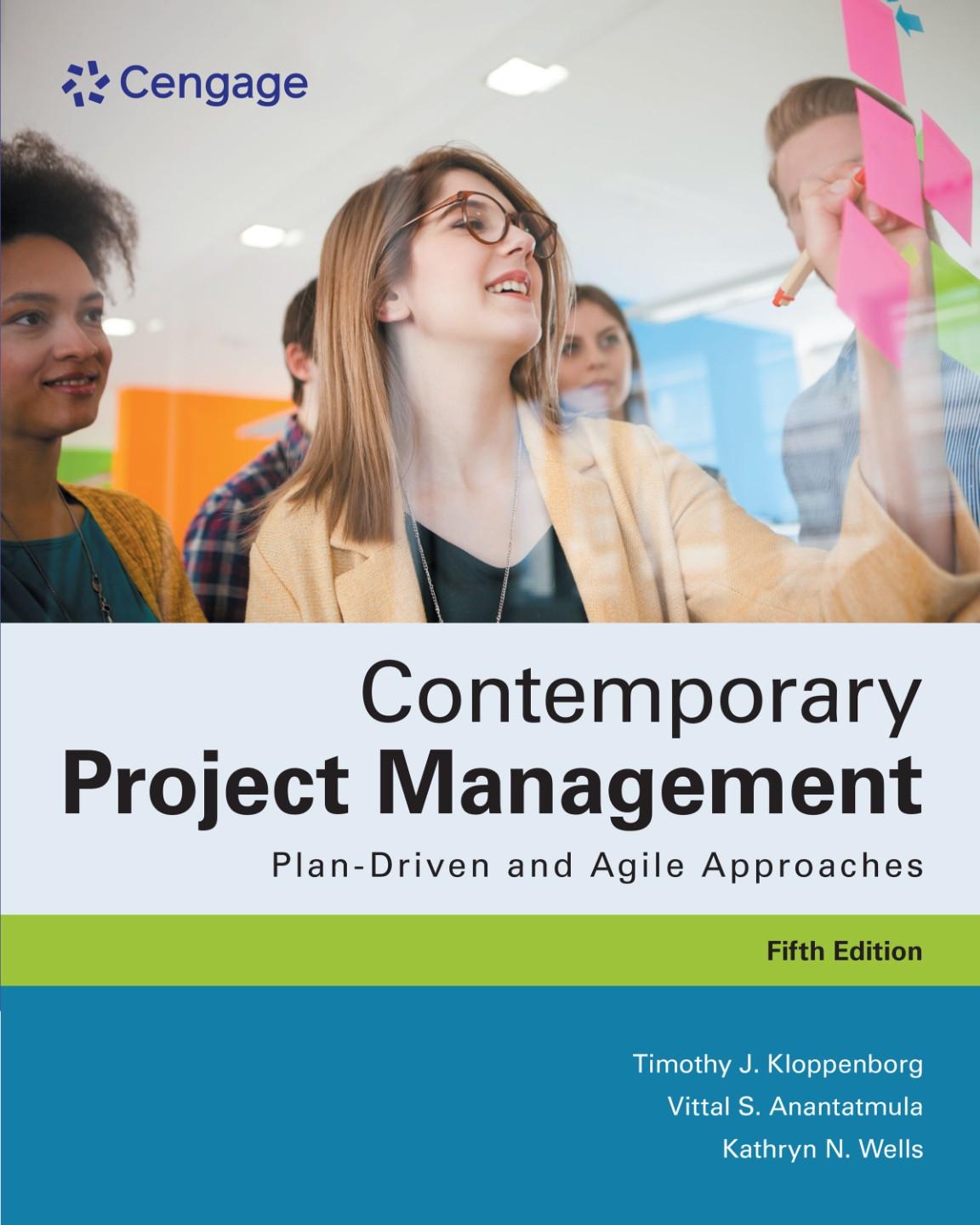
Get complete eBook Instant Download Link below https://scholarfriends.com/singlePaper/455941/ebookcontemporary-project-management-5th-edition-bytimothy-kloppenborg-vittal-anantatmula-kathry
"Contemporary Project Management: Plan-Driven and Agile Approaches" (5th Edition) by Timothy Kloppenborg, Vittal Anantatmula, and Kathryn Wells offers a comprehensive exploration of project management methodologies, integrating both traditional and agile practices. Below is a chapter-wise summary of the book:
Part 1: Organizing Projects
Chapter 1: Introduction to Project Management
o Provides an overview of project management, defining key concepts and emphasizing the importance of aligning projects with organizational strategy.
Chapter 2: Project Selection and Prioritization
o Discusses methods for evaluating and selecting projects that align with strategic objectives, including cost-benefit analysis and scoring models.
Chapter 3: Chartering Projects
o Explores the development of project charters, outlining project objectives, scope, stakeholders, and the formal authorization of projects.
Chapter 4: Organizational Capability: Structure, Culture, and Roles
o Examines how organizational structures and cultures influence project management, and defines key roles such as project managers and sponsors.
Part 2: Leading Projects
Chapter 5: Leading and Managing Project Teams
o Focuses on building and leading effective project teams, addressing team development, leadership styles, and conflict resolution.
Chapter 6: Stakeholder Analysis and Communication Planning
o Emphasizes the importance of identifying stakeholders and developing communication plans to manage stakeholder expectations and engagement.
Part 3: Planning Projects
Chapter 7: Holistic Scope Planning
o Covers techniques for defining and managing project scope, including work breakdown structures and scope verification processes.
Chapter 8: Scheduling Projects
o Introduces methods for developing project schedules, such as Gantt charts and critical path analysis, to ensure timely project completion.
Chapter 9: Resourcing and Accelerating Projects
o Discusses resource allocation, leveling, and strategies for accelerating project timelines when necessary.
Chapter 10: Budgeting Projects
o Explores cost estimation techniques, budgeting processes, and financial control mechanisms to manage project finances effectively.
Chapter 11: Project Uncertainty Planning
o Addresses risk management planning, including risk identification, assessment, response strategies, and monitoring.
Chapter 12: Project Quality Planning and Project Kickoff
o Focuses on quality management principles, planning for quality assurance and control, and conducting effective project kickoff meetings.
Chapter 13: Project Procurement and Partnering
o Examines procurement processes, contract management, and developing partnerships with vendors and suppliers.
Part 4: Performing Projects
Chapter 14: Determining Project Progress and Results
o Covers performance measurement techniques, including earned value management, to track project progress and outcomes.
Chapter 15: Finishing the Project and Realizing the Benefits
o Discusses project closure activities, such as final deliverable acceptance, lessons learned documentation, and benefit realization analysis.
This edition aligns with both the 6th and 7th editions of the PMBOK® Guide, incorporating traditional process-based practices and agile methodologies. Each chapter includes objectives, key terms, review questions, and practical examples to reinforce learning and application.
https://scholarfriends.com/singlePaper/455941/ebookcontemporary-project-management-5th-edition-bytimothy-kloppenborg-vittal-anantatmula-kathry
